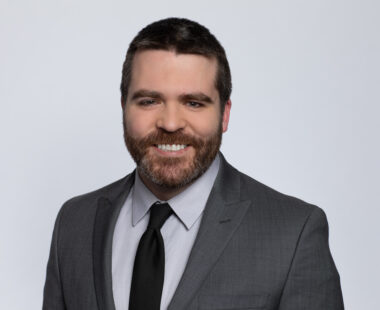- Overview
- What to Expect
Oppenheimer Investigations Group conducts fair, timely and thorough workplace investigations for public agencies, private companies large and small, non-profits and educational institutions. We investigate complaints alleging discrimination based on race, gender, gender identity, sexual orientation, religion, and disability as well as allegations of harassment, retaliation, workplace bullying, and other misconduct. We have investigated complaints between co-workers but also against elected officials, executives, and high-level public agency leaders.
We bring impartiality, conscientiousness, and expertise to every investigation, without prejudging the parties involved or assuming a given outcome divorced of the facts. In investigating a complaint, we are sensitive to each party’s perspective and desire to be heard as well as to the need of the entity that engaged us to reach a prompt, well-reasoned, and cost-effective resolution of the conflict.
Our Investigations Team
Our Investigations Team is comprised of well-trained attorney investigators with a wealth of experience in various sectors of the law, including former administrative law judges, employment law practitioners, public policy advocates, and litigators from the plaintiff’s bar, defense firms as well as county and federal government agencies. An integral part of our team are the skilled writers and editors who help us provide timely and well-written investigative reports as well as our administrative team who manage our client matters from case intake to closure. Working as a unit, our team ensures that we provide high quality service tailored to meet the needs of each client in a seamless, transparent, prompt and reliable investigative process.
We have performed hundreds of investigations – for public entities, including counties, cities, special districts, school districts and state agencies, non-profit organizations, and private sector employers across many industries, ranging from emerging local businesses to many of the prominent technology companies in the Silicon Valley. No matter the case or the client, we pride ourselves on the consistency of our service and our dedication to providing insight, integrity, and impartiality in every investigation.
Many of these investigations have involved Title IX, EEOC and DFEH complaints. Our Group has also conducted investigations involving police departments under the Public Safety Officers Procedural Bill of Rights (POBOR) and fire departments under the Firefighters Procedural Bill of Rights (FBOR).
The representative matters we have investigated include the following:
Investigations for Public Entities
- County Agency – We investigated allegations of harassment and retaliation, including unwanted touching and inappropriate religious comments, brought by county employee against an agency director and coworkers.
- Public Agency – We investigated allegations of racial discrimination and retaliation brought by two agency employees against an agency executive.
- Public Agencies – We have investigated numerous complaints brought both by and against elected officials.
Investigations for Private Employers
- Large Tech Company – We investigated allegations of racial discrimination and favoritism brought by multiple employees against a high-level executive.
- Food Manufacturing Company – We investigated allegations of race and gender discrimination, inappropriate racial comments, and retaliation brought by an employee against coworkers, managers, company executives, and human resources.
Investigation for Educational District and Institutions
- University – We investigated allegations of intersectional discrimination based on race and gender brought by a faculty member against university administrators.
- Private School – We investigated allegations of inappropriate conduct brought by an alumnus against a teacher.
- Various schools – We have investigated numerous allegations of sexual assault both by faculty and students.
Our Commitment to Our Clients
Our dedication to being truly impartial means recognizing and confronting our own biases and not allowing bias to interfere with the outcomes of our investigations. As investigators we interact with people of different races, genders and sexual orientations, and we understand that interacting with people across cultural divides calls for heightened skills, sensitivities and perspectives.
We also “right size” each investigation, meaning we do not spend hundreds of hours on an allegation of minor consequence. We believe that we can be fair and thorough while also making careful choices about what to pursue and how to pursue it. We commit to providing high-quality services at a reasonable rate.
Changes due to COVID-19
Like all Americans, we have adjusted the way we work to maintain compliance with local and state shelter-in-place orders to slow the spread of COVID-19. We have been able to maintain the quality and effectiveness of our investigations during the pandemic by conducting investigative interviews via online videoconference using secured platforms that maintain confidentiality. We confirm ahead of time that each witness has sufficient online connectivity and is comfortable logging onto the online platform.
Before and during the interview, we take steps to put the witness at ease while ensuring that privacy and confidentiality of the interview are maintained. For those investigation witnesses who do not have reliable online connectivity, we conduct interviews via telephone, again ensuring that the witness is comfortable, and that privacy and confidentiality are maintained.
Steps in a Typical Investigation
From start to finish, a standard investigation (with one complainant, one respondent, and six witnesses) typically takes six to eight weeks to complete. This includes four to six weeks to conduct interviews and an additional two weeks to complete the investigation report. Some cases take less time, while others require more – depending on the complexity and number of allegations at issue and people’s availability to meet with the investigator. In certain circumstances where, for example, a respondent has been placed on administrative leave, or a party or a key witness has a scheduled vacation or departure from the entity approaching, we will try to fast track the case and prioritize it over other matters to complete it sooner, and possibly even provide a truncated final report. In all instances, we work as efficiently as possible to conduct a fair, thorough, timely and cost-effective investigation for our clients.
Here are the steps you can expect in our investigative process:
- Case Intake – Our intake manager will have a conversation with the client to understand the complaint and client needs.
- Retainer – Our office manager will work with the client to execute a retainer agreement for the investigation.
- Case Assignment – The investigator and the client will discuss the scope of the investigation and case logistics, such as scheduling, time constraints, budgets and other considerations.
- Introductory Client Call – The investigator will schedule a call with the designated client contact to discuss the scope of the investigation and case logistics, such as scheduling, time constraints, budget, and other considerations.
- Intake Interview with Complainant(s) – Typically within a week after the retainer is executed, the investigator will meet with the complainant(s) to understand the concerns and allegations that will form the basis of the investigation.
- Confirm Scope – The investigator may need to reconfirm the scope of the investigation with the client if the complainant(s) raise new or different allegations during the intake interview.
- Investigative Interviews – Over the course of two or three weeks, the investigator will meet with the respondent(s) to understand their side of the story and obtain their response to each specific allegation lodged against them. The investigator will also meet with witnesses, some of whom the parties have suggested and others who the investigator has identified as likely to have relevant information regarding the allegations.
- The Report – Typically about two weeks after the last interview, the investigator will provide a written report of the interview summaries and the investigator’s factual findings to the client. Within that two-week time period, the investigator will finish writing the report, send it to a writer for copyediting, and then send it to a supervising attorney/partner to substantively review the report, including the findings, to ensure that the analysis and determinations are well thought out, fair, and unbiased.
- Final Determination – Once the investigator provides the final report to the client, our firm is typically not involved in deciding what disciplinary actions should be issued as a result of the investigation.
- Conflict Resolution – Because our investigators are in a unique position to ascertain the common concerns and root causes of these conflicts, we might suggest other conflict resolution tools, such as mediation, coaching, or implicit bias training. In some cases, we can refer the client to someone and at other times members of our team who were not involved in the investigation can assist with this.
Why hire an external investigator?
Many complaints can be investigated by a competent, experienced internal human resources professional. However, not all companies have such a person. Even if a qualified in-house person is available, it can be advisable to use an outside investigator in certain circumstances, such as:
- When the complaint is brought by or against a member of the human resources or employee relations team;
- When the complaint is brought by or against an individual who has more authority than the internal investigator;
- When the internal investigator has any perceived or actual biases related to the complaint;
- When other circumstances would make it difficult for an internal person to maintain objectivity or independence;
- When the internal investigations team is presented with a complicated and nuanced complaint that is beyond their experience and expertise to handle.
Does every workplace complaint necessitate an investigation?
No, not every complaint requires an investigation.
One way we answer the question as to whether an investigation is necessary is by asking: “Are there allegations that, if true, would constitute a violation of rules, laws, policies, important workplace expectations, or codes of ethics?” If so, and if you do not have enough information to determine what did or did not happen, you should have someone investigate the matter to gather that information.
We can help clients determine if an investigation is needed by conducting an “intake,” meaning an initial meeting with the complainant, to give the client additional information to decide whether to launch a full investigation into the allegations reported. The intake may reveal management issues that can be handled internally, serious or problematic allegations that should be investigator, and/or organizational or team concerns that might be better resolved through a facilitated mediation or bias training, instead of a workplace investigation. We will work with you to find the service that most appropriately meets your needs.
How much will an investigation cost?
We wish we could give a definite answer to this, but there are too many variables. We bill by the hour, not on a flat-fee basis. Costs vary depending on the number and complexity of the issues, the number of witnesses to be interviewed and the number of documents that need to be reviewed.
Most of the investigations we conduct cost between $15,000 and $30,000. The more expensive investigations usually involve multiple complainants and/or respondents, multiple allegations, and/or substantial document review. A small percentage of our investigations bill out at less than $10,000 and an equally small number come in more than $60,000, but these are not the norm for our practice.
We strive to make investigations as affordable as possible under the circumstances of the case.
How long will it take and how many people will be interviewed?
One thing that distinguishes a competent, experienced investigator from a novice is the ability to determine what needs to be investigated, what is superfluous and how to get to the core issues efficiently. We call this “right sizing” the investigation.
We will do everything necessary for a thorough investigation, but nothing more. Interviewing unnecessary witnesses is expensive – both in terms of cost and the impact in the workplace. We efficiently analyze the allegations and evidence to avoid unnecessary financial and workplace impact.
Once our office is retained, we start the investigation as soon as possible. We then proceed as quickly as practicable under the circumstances. Some investigations are wrapped up in a matter of weeks, while others may take months.
Will I receive a written report of the investigation?
In nearly all of our investigations, we produce a written report. We also prepare an executive summary of the investigation and findings, at the client’s request. The report sets out the complaint, response, information gathered from witnesses and documents and the findings, including the reasoning for the findings.
Our findings are usually factual findings rather than legal or policy findings.






















